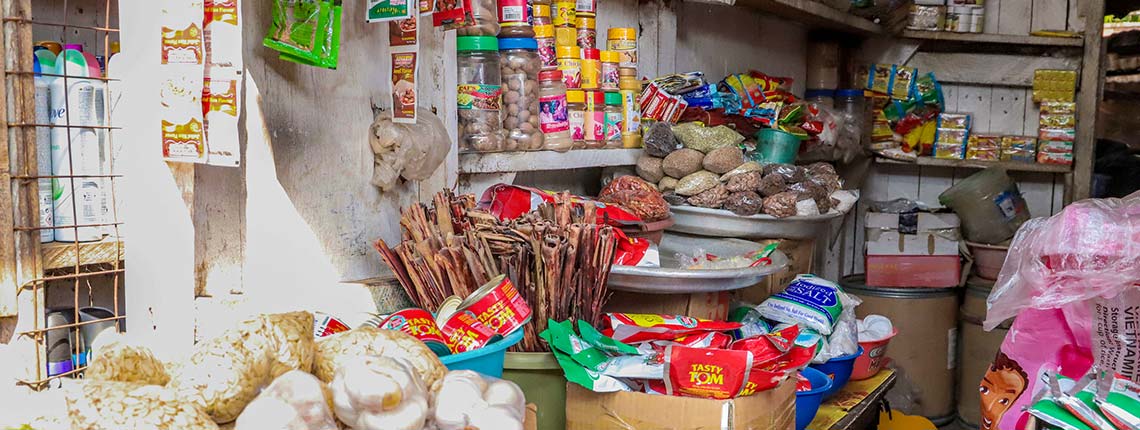World Cities Day in 2023 is a crucial time to reflect as cities across the Global South recover from the effects of the pandemic and navigate a cost-of-living crisis amid rising levels of public debt. In short, fiscal space is tight and cities are on the front lines of intersecting crises. Against this backdrop, ‘financing a sustainable urban future for all’ requires a clear understanding of how local and city governments generate their revenues and supply public services to their inhabitants.
In cities across the Global South, where the vast majority of employment is informal, there has been a growing trend towards taxing the ‘hidden goldmine’ in revenues from the informal economy. However, financing a sustainable urban future requires governments to shift their focus away from taxing the informal economy to, instead, providing urban infrastructure, high-quality public services and inclusive urban design. At the same time, governments would do well to focus their tax collection efforts on the wealthy; high-income earners, including high net worth individuals, as well as large corporations.
What is ‘fiscal decentralization’?
The allocation of fiscal functions across different spheres of government, broadly termed ‘fiscal decentralization’, tends to assign to local government the responsibility of how to spend public money gathered through taxes. The main rationale for this approach is that governments and officials at the local or city level are closer to their constituents and therefore more likely to understand their needs in terms of service provision. This idea of greater ‘allocative efficiency’ by local government also considers the incentives that shape the behaviours and responses of local government to the needs of their constituents. However, a key tension with fiscal decentralization is that, when decisions around taxation and spending are made at the local level, broader objectives around equity and redistribution may not align with national level policy. Perhaps of even greater concern is that local taxes are often added on top of national taxes and that these ‘stacked’ tax payments are invisible to most fiscal analyses.
The reality
All of this matters a great deal to workers in informal employment, who make up the vast majority of urban employment in low and middle-income countries. Low tax to GDP ratios in these countries means that there is a perennial pressure to improve revenue collection. Despite evidence that informal economy workers already pay taxes, and that the vast majority earn below the tax threshold, there has been a certain zeal for presumptive tax regimes to target workers in informal employment in recent years. Presumptive regimes, including those implemented at the local level, work by levying taxes on the presumed incomes of an informal business based on the size of the business, its location or its main activity.
The pressure on local and city governments to raise revenues and provide services often results in a regressive and unequal tax burden – particularly among workers in informal employment. As a result, low earners pay a larger percentage of their earnings in taxes, compared to those with higher incomes.
In Accra, Ghana, for example, municipal assemblies collect a range of payments from workers in informal employment. These largely fall into two types. The first includes payments that vary according to category and size – most notably business-operating licences, which in Accra are collected by the Accra Metropolitan Assembly (AMA). The second includes fixed fees payments that are levied regardless of income or type of economic activity. This includes, for example, the ‘daily toll’, which is paid predominately by market traders or traders operating in the immediate vicinity of urban markets. While each of these payments is low in absolute terms, they make up roughly one quarter of total municipal revenues.
One of the largest and most recent studies on taxing the informal economy was conducted in Accra in 2022. The results show that the lowest earners in Accra’s informal economy pay about 17% of their pre-tax earnings in taxes and payments, placing a significant burden on workers in the informal economy. The largest receiver of these payments, by far, is the city government (AMA). Approximately 10% of earnings among this group of workers in informal employment is paid to the AMA (largely in the form of fees, taxes and operating licences). The result is a highly regressive structure of payment and taxation.
In addition to a high and regressive tax burden, another problem with city-level tax regimes is that they often violate the principle of fiscal exchange. This principle outlines the importance of reciprocity in the tax relationship between the state and taxpayers. When taxation occurs without adequate service provision, access to infrastructure or public space, then fiscal decentralization is not sustainable.
Financing a sustainable urban future
A recent OECD study suggests that presumptive tax regimes should be accompanied by non-tax support measures, such as access to social protection, credit, training and business development services. Since informal economies are a crucial part of urban economies, investment in public services and infrastructure should be provided in exchange for the tax contributions that workers in the informal economy make.
The current approach to financing an urban future by squeezing more tax revenues from workers in informal employment is not sustainable. The urban future that we should be pursuing is based on productive informal economies with access to high-quality public services and inclusive infrastructure. Workers in informal employment are, in many contexts, voluntary and compliant taxpayers but they cannot finance the urban future for all without a more equitable tax system that prioritizes services and infrastructure.
Photo: The stall of a trader in Tema Station Market in Accra. Credit: Benjamin Forson
